L’evento organizzato a Bari lo scorso 10 luglio ha evidenziato, attraverso un panel qualificato di stakeholder, come affrontare i problemi legati alla mancanza di competenze di alto livello, soprattutto nel settore digitale, attraverso la cooperazione transfrontaliera.
Si è svolto lo scorso mercoledì 10 luglio 2024, presso la Room “BALAB” dell’Università di Bari, il workshop dal titolo “Participatory process and co-design of ILOFORDIGITAL development and enhancement activities”, nell’ambito del Progetto ILOFORDIGITAL (“Industrial Liaison Offices – ILO – for empowerment of a cross border Digital, entrepreneurial and professional skills network” SA-0100122), finanziato dall’Unione Europea attraverso il Programma Interreg IPA South Adriatic 2021/2027, in base all’Obiettivo Specifico S.O.4.1.
Il progetto nasce dalla collaborazione del Dipartimento di Informatica dell’Università di Bari con Sviluppo Italia Molise (IT), Università di Valona “Ismail Qemali” (AL), Università “Fan S. Noli” (AL) e Università montenegrina Federazione dei datori di lavoro (MNE). Parallelamente, importanti partner associati come il Centro Internazionale Studi Agronomici Mediterranei Avanzati, Distretto It pugliese, Università Aleksandër Moisiu Durazzo, Università Politecnica di Tirana, Dhitech Distretto Tecnologico High-Tech Scarl, sono coinvolti per garantire una diffusione capillare dei principali aspetti di ILOFORDIGITAL.
Sono stati numerosi gli spunti emersi e gli approfondimenti condotti attraverso il workshop, che ha visto la partecipazione interattiva di numerosi interlocutori provenienti dal mondo accademico ed imprenditoriale, oltre che quella dei partner internazionali.
Dopo la sessione introduttiva, che ha permesso di ricostruire lo scenario economico e scientifico sottostante le problematiche derivanti dal digital “brain drain” nei diversi paesi, ciascun partner ha presentato le specificità terrioriali e il percorso intrapreso per il conseguimento di strategie orientate all’innovazione e allo sviluppo di processi di crescita nei settori considerati strategici. Nel dettaglio, sono state illustrate le principali evidenze della context analysis che permette di inquadrare l’ambito di riferimento e il potenziale sviluppo del progetto.
Attraverso il supporto di una facilitatrice, è stata organizzata una specifica sessione interattiva, in cui i partecipanti al workshop hanno discusso ed elaborato una SWOT analysis di riferimento per la definizione di una strategia comune di intervento. Quello che è subito emerso, è la condivisione di numerosi aspetti critici che limitano lo sviluppo dei settori economici caratterizzati da più elevati
contenuti digitali ed ICT related, per cui in tali comparti il contributo e la presenza di risorse umane qualificate e dotate di buone competenze è un aspetto cruciale per il successo delle iniziative imprenditoriali.
Il workshop ha permesso pertanto di porre le basi per i successivi e auspicati sviluppi che consentiranno di definire, attraverso i network attivati, una strategia comune di intervento declinata rispetto alle specificità dei diversi territori, puntando da un lato sul superamento degli elementi critici rilevati e dall’altro sulla valorizzazione delle opportunità disponibili.
Bari, 12 Luglio 2024
ILOFORDIGITAL – Industrial Liaison Offices (ILO) for empowerment of a cross border Digital, entrepreneurial and professional skills network – WORKSHOP OUTCOMES
The event recently organized in Bari on 10th July highlighted, through a qualified panel of stakeholders, how to address problems related to the lack of high-level skills, especially in the digital sector, through cross-border cooperation
The workshop entitled “Participatory process and co-design of ILOFORDIGITAL development and enhancement activities” took place last Wednesday 10th July 2024, at the “BALAB” Room of the University of Bari, as part of the ILOFORDIGITAL Project (“Industrial Liaison Offices – ILO – for empowerment of a cross border Digital, entrepreneurial and professional skills network” SA-0100122), financed By the European Union through Interreg IPA South Adriatic Program 2021/2027, according to S.O.4.1.
The project was born from the cooperation of the Department of Informatics of the University of Bary in partnership with Sviluppo Italia Molise (IT), University of Vlora “Ismail Qemali” (AL), “Fan S. Noli” University (AL) and Montenegrin Employers Federation (MNE). In parallel, important associated partners such as the International Centre for Advanced Mediterranean Agronomic Studies, Apulian It District, Aleksandër Moisiu University Durrës, Polytechnic University of Tirana, Dhitech High-Tech Technological District Scarl, are involved to ensure a widespread diffusion of ILOFORDIGITAL features.
Numerous ideas emerged and insights were conducted through the workshop, which saw the interactive participation of several stakeholders from the academic and business world, as well as that of international partners.
After the introductory session, which allowed to reconstruct the economic and scientific framework underlying the problems arising from the digital “brain drain” in the various countries, each partner presented the territorial specificities and the path undertaken to achieve strategies oriented towards innovation and to the development of growth processes in sectors considered strategic. In details, the main findings of the context analysis have been illustrated, which allows to summarize the scope of reference and the potential development of the project.
Through the support of a facilitator, a specific interactive session was organised, in which the workshop participants discussed and developed a reference SWOT analysis for the definition of a common intervention strategy. What immediately emerged is the sharing of numerous critical aspects that limit the development of economic sectors characterized by higher digital and ICT
related contents, so in these areas the contribution and presence of qualified human resources with good skills is a crucial aspect for the success of entrepreneurial initiatives.
The workshop therefore made it possible to lay the foundations for the subsequent and desired developments which will allow to define, through the activated networks, a joint strategy adapted to the specificities of the different territories, focusing from one side on overcoming the critical elements identified and on the other on exploiting available opportunities.
Bari, 12th July 2024
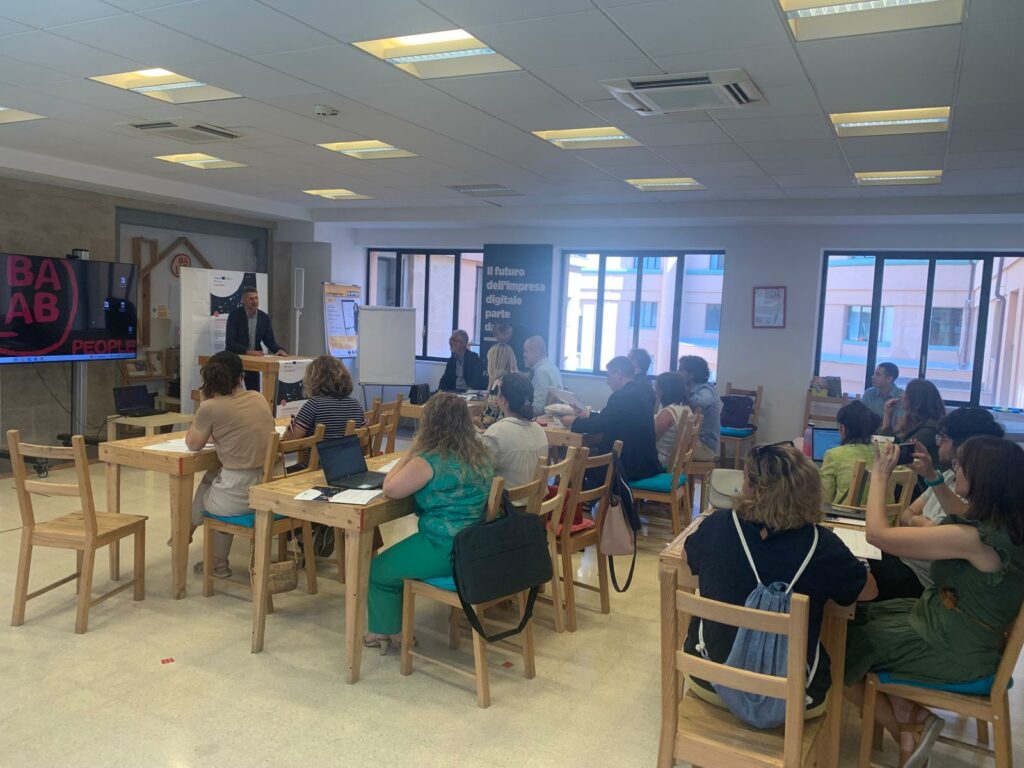
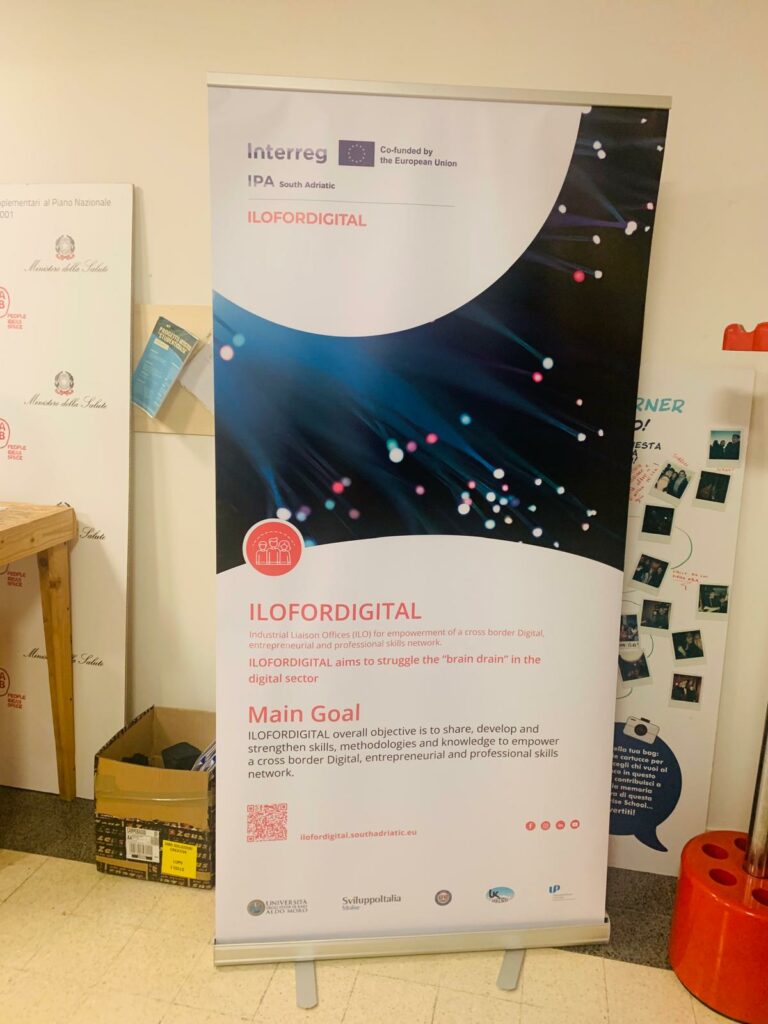
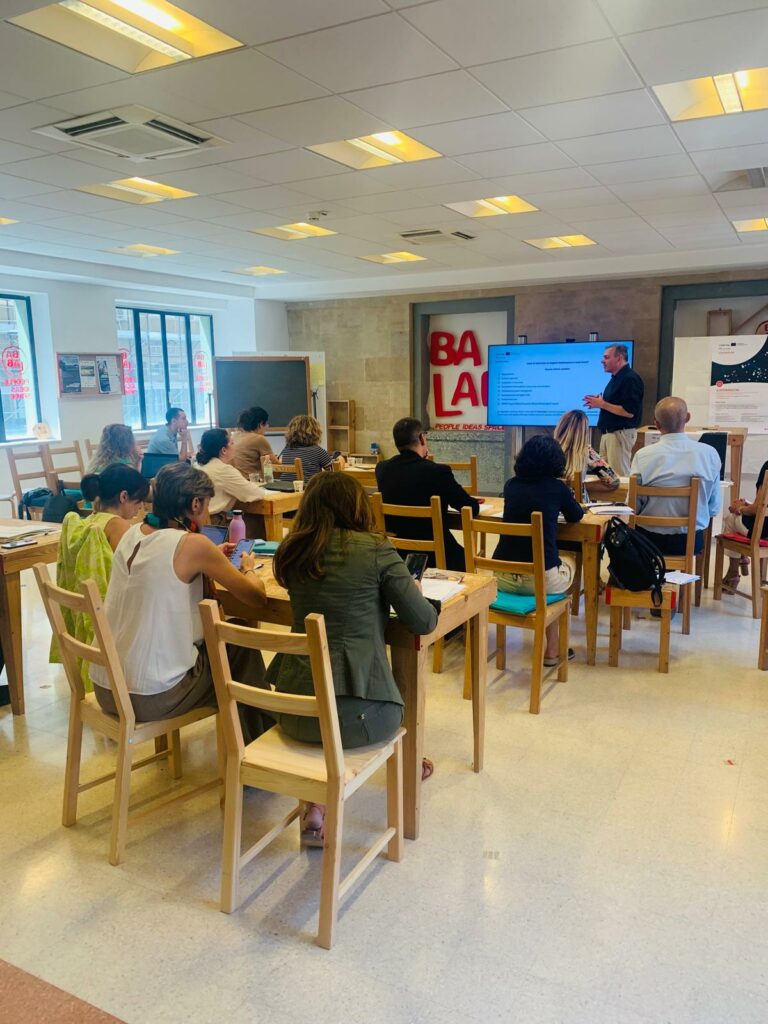
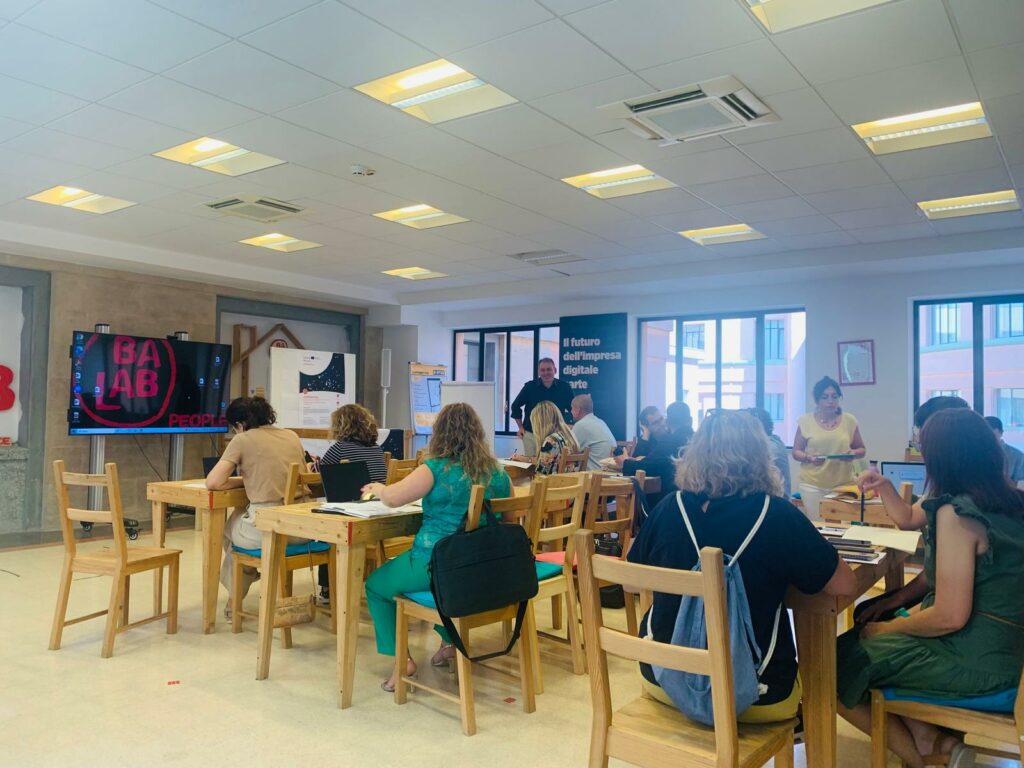
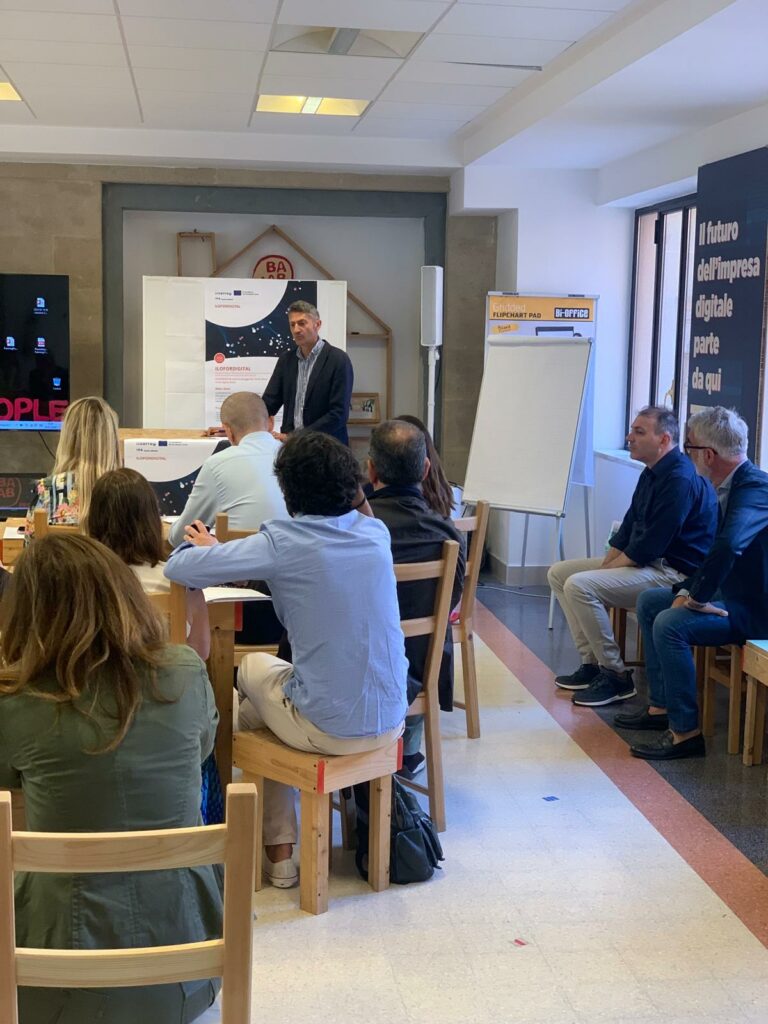
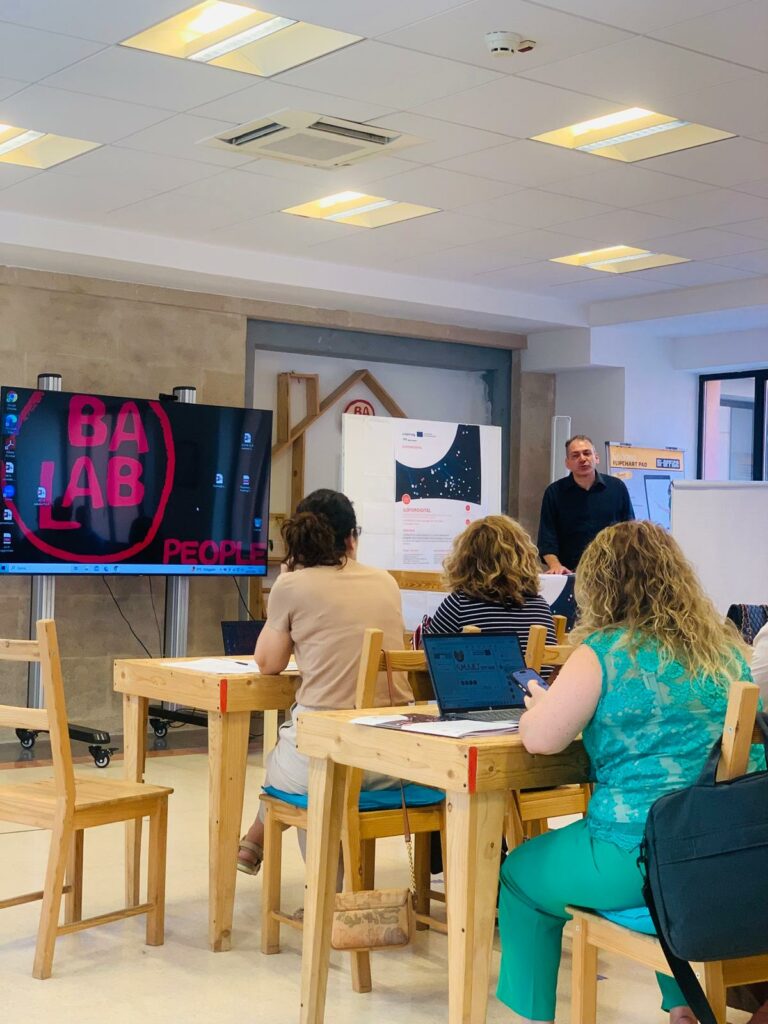
Ultimo aggiornamento 18 Luglio, 2024

